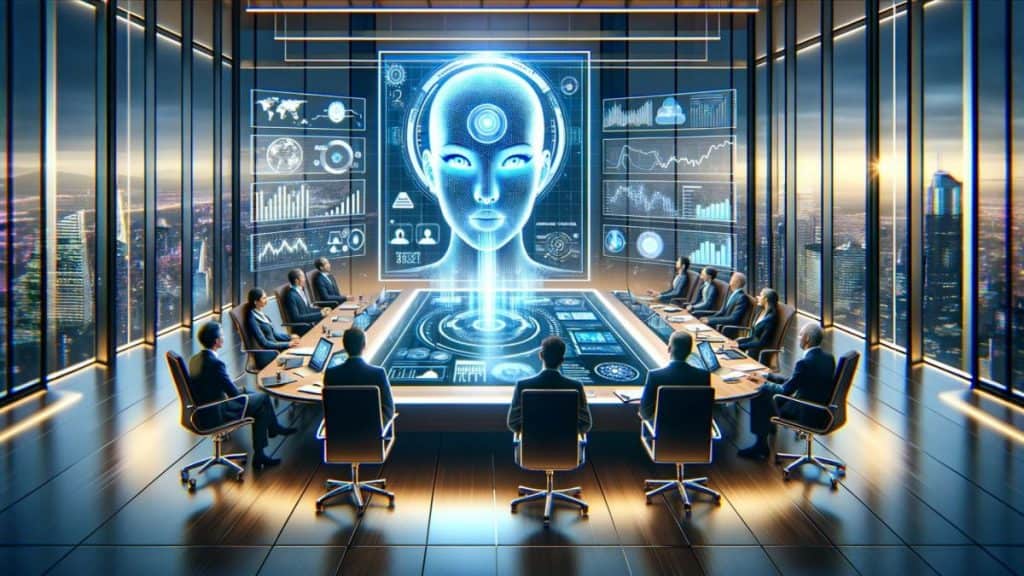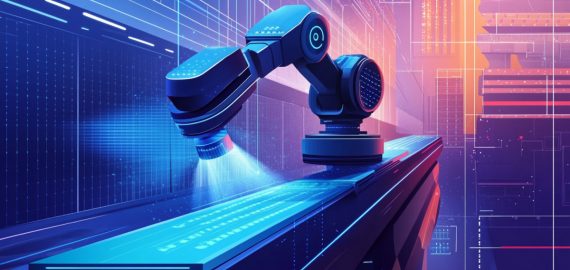Dictador Announces Mika as World’s First ‘AI CEO’, Sparks Concerns on AI-led Corporate Leadership


In Brief
Dictador announced that Mika as CEO, will oversee the Arthouse Spirits DAO project and actively participate in the DAO community.

Poland-based luxury lifestyle company Dictador has appointed Mika, the world’s first AI humanoid robot as its CEO, and the development seems to validate concerns about AI replacing jobs.
Mika is the outcome of a collaborative research project between Dictador and Hanson Robotics, a robotics company based in Hong Kong known for creating human-like robots with AI applications in consumer service, healthcare and entertainment.
Notably, Mika represents a more sophisticated iteration of her sister’s prototype, Sophia announced in Hong Kong in 2015.
According to the luxury brand, as the CEO, Mika will handle the Arthouse Spirits DAO project and engage with the DAO community on behalf of the company. Mika has been actively participating in various public events to represent Dictador since she commenced her ‘career’ on September 1, 2022.
Artificial intelligence poses a looming threat to diverse professions, encompassing writers, teachers, bankers, and lawyers. Yet, an intriguing exception emerges: the CEO role, typically both the costliest and seemingly susceptible to automation, appears resilient to the influence of technologies such as ChatGPT.
The recent development prompts a re-evaluation of the prevailing assumptions.
Can Artificial intelligence Replace CEOs?
Almost 49 percent of CEOs believe AI has the potential to effectively take over most or all of their roles, and a significant 79 percent express concerns about falling behind if they don’t acquire AI skills, reveals a survey conducted by the online education platform EdX.
Surprisingly, about 80 percent of a CEO’s time is consumed by routine tasks like finalising reports and conveying information in various ways to different individuals. Additionally, there are mundane tasks including market analysis, addressing supply chain challenges, managing business alignments, resolving technology issues, handling personnel matters and more.
The majority of the time spent on these tasks, around 90 percent or more, involves absorbing and interpreting data – a task ideally suited for AI.
Despite these findings, only a few chief executives harbor concerns about being completely replaced by an AI CEO. According to many, there are still essential soft skills that are unlikely to be digitized, including creativity, critical thinking, leadership, team building, collaboration and perhaps most crucially, the ability to inspire others to execute a strategic vision.
Early AI adopters have gained crucial insights into its effects on both workers and customers. To give an example, insurance sector businesses started utilizing machine learning, AI-driven algorithms, and chatbots for tasks like addressing customer inquiries, evaluating, and handling claims, underwriting and fraud detection.
However, despite the efficiency of AI-enabled chatbots in natural language processing and speech recognition, dealing with certain customers demands a level of sensitivity that goes beyond these capabilities.
As the dialogue surrounding AI’s potential impact on executive leadership gains momentum, the business world anticipates a careful balance between technological advancements and the irreplaceable human touch in corporate decision-making. The intersection of AI and leadership is an evolving narrative, and stakeholders are keenly observing how this relationship will shape the future of CEOs in the era of artificial intelligence.
Disclaimer
In line with the Trust Project guidelines, please note that the information provided on this page is not intended to be and should not be interpreted as legal, tax, investment, financial, or any other form of advice. It is important to only invest what you can afford to lose and to seek independent financial advice if you have any doubts. For further information, we suggest referring to the terms and conditions as well as the help and support pages provided by the issuer or advertiser. MetaversePost is committed to accurate, unbiased reporting, but market conditions are subject to change without notice.
About The Author
Kumar is an experienced Tech Journalist with a specialization in the dynamic intersections of AI/ML, marketing technology, and emerging fields such as crypto, blockchain, and NFTs. With over 3 years of experience in the industry, Kumar has established a proven track record in crafting compelling narratives, conducting insightful interviews, and delivering comprehensive insights. Kumar's expertise lies in producing high-impact content, including articles, reports, and research publications for prominent industry platforms. With a unique skill set that combines technical knowledge and storytelling, Kumar excels at communicating complex technological concepts to diverse audiences in a clear and engaging manner.
More articles

Kumar is an experienced Tech Journalist with a specialization in the dynamic intersections of AI/ML, marketing technology, and emerging fields such as crypto, blockchain, and NFTs. With over 3 years of experience in the industry, Kumar has established a proven track record in crafting compelling narratives, conducting insightful interviews, and delivering comprehensive insights. Kumar's expertise lies in producing high-impact content, including articles, reports, and research publications for prominent industry platforms. With a unique skill set that combines technical knowledge and storytelling, Kumar excels at communicating complex technological concepts to diverse audiences in a clear and engaging manner.


















































